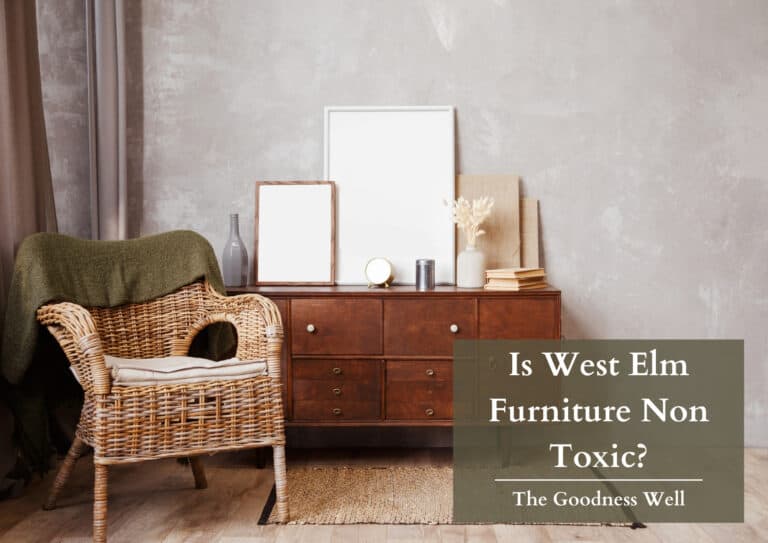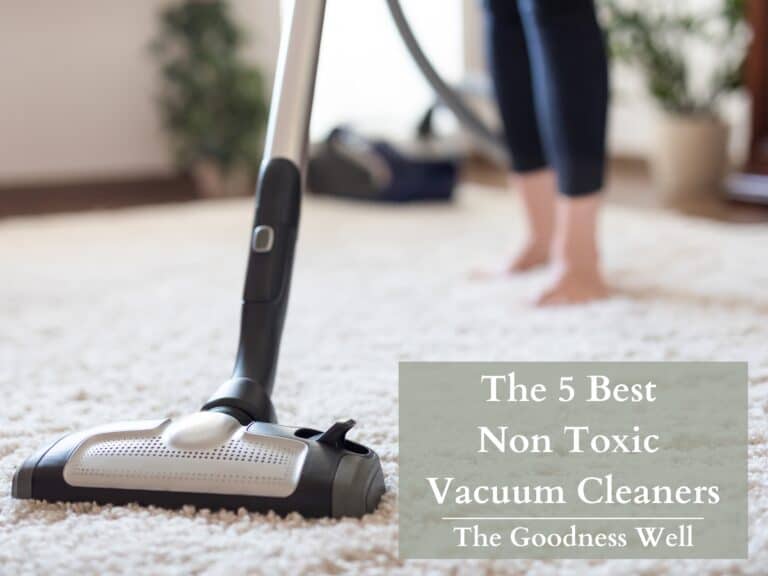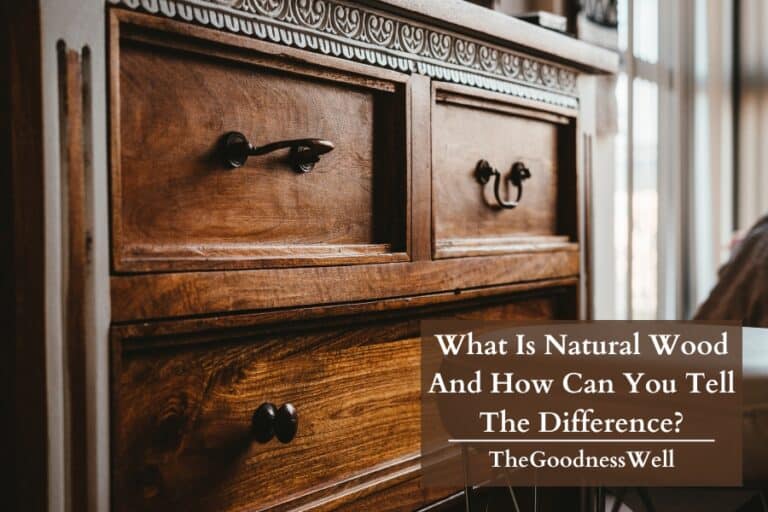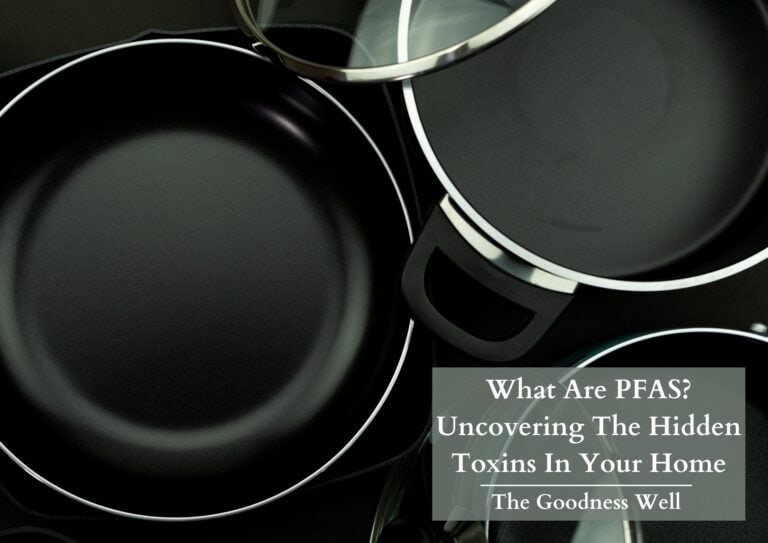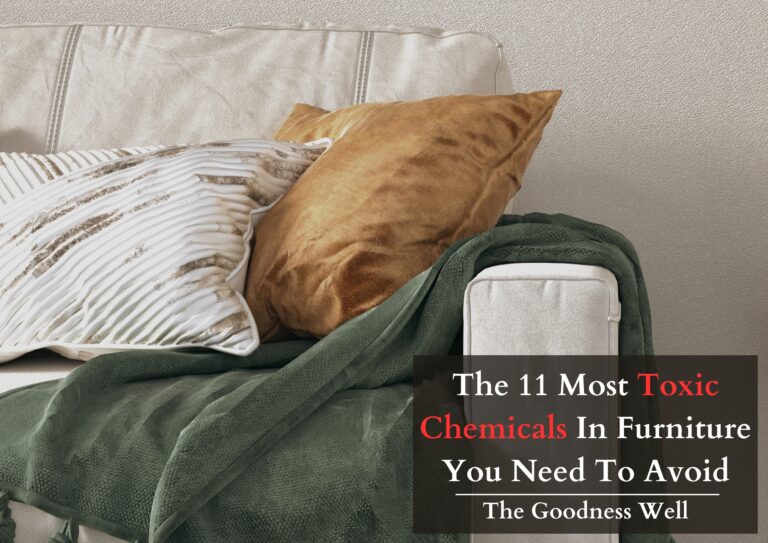Is Granite Cookware Safe? A Quick Rundown
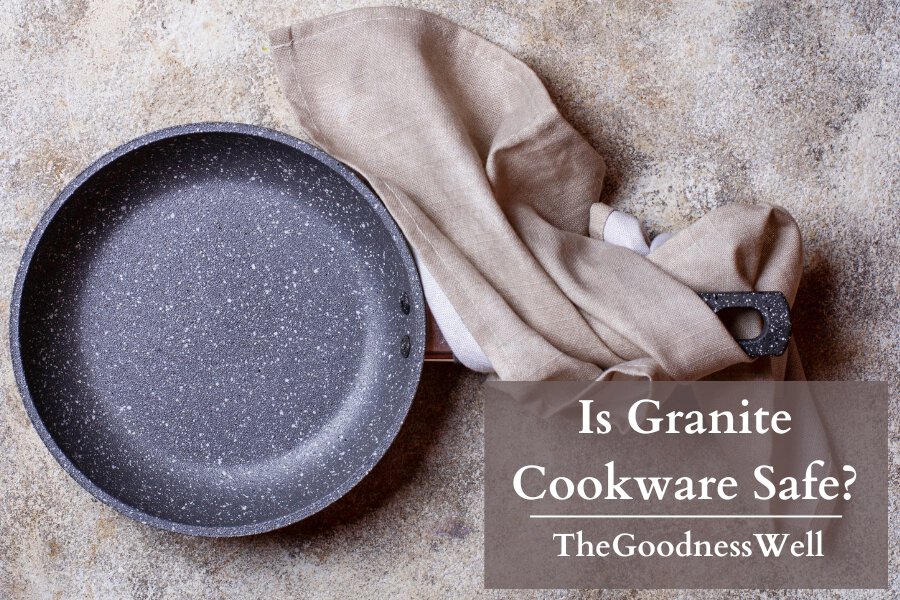
Navigating the world of kitchenware can sometimes feel overwhelming. With toxic chemicals like PFAS, Gen X, and lead hiding in different cookware out there, It’s hard to know what’s safe and what isn’t. That’s why choosing safe cookware is key!
While on your search, you might have come across granite cookware and wondered, “is granite cookware safe?”
Here at The Goodness Well, we don’t take having a healthy home for granite (bah-dum-tsss).
In this article, we’ll break down all there is to know if granite cookware is toxic or not.
So let’s get into it!
TL;DR
Granite cookware, despite its name, is made from a metal base such as cast iron or aluminum and coated with an enamel and a non-stick layer. Its safety depends on the type of non-stick coating: PTFE/Teflon, which is durable but toxic, and ceramic coatings, which are safer but less durable. The safest granite cookware is typically labeled “ceramic” and “PTFE, PFOA-free,” while those just marked “PFOA-free” may still contain PTFE. For safer alternatives, use natural but less effective non-stick materials like cast iron or stainless steel.
What Is Granite Cookware Made Of?
Granite, or granitestone cookware, contrary to their name, are not made from granite. Instead, it’s made with a base of cast iron, aluminum, carbon steel, or stainless steel who’s exterior is coated with a durable enamel layer and inside is coated with a non stick layer. Both of these layers are mixed with the same particles and pigments to give the pan its “granite” look.
“So granite cookware isn’t actually granite!?”
Smh, we’ve been fooled…
It’s kind of like how ceramic pans aren’t actually ceramic at all. They’re also made with a metal base and a “ceramic-coating” (which is really silicone dioxide and contains no ceramic- it just has a ceramic-look).
Welcome to marketing, folks.
Is Granite Cookware Safe?
Deciding if granite cookware is safe all depends on the coating. We do a deep dive into coatings in cookware in another article but we’ll break it down for you simply here:
There are two types of coatings in non stick cookware:
- PTFE/Teflon Coatings: Made from a type of PFAS, this coating is very durable and long-lasting but is toxic and we don’t recommend it.
- Ceramic Coatings: Made from silicone dioxide, this coating is safer and non-toxic, but is less durable and the non stick coating doesn’t last as long. This is our recommended coating.
“But how do I know which coating my granite cookware has?”
Examples of Safe & Unsafe Granite Cookware
Here are examples of each:
Safe Granite Cookware
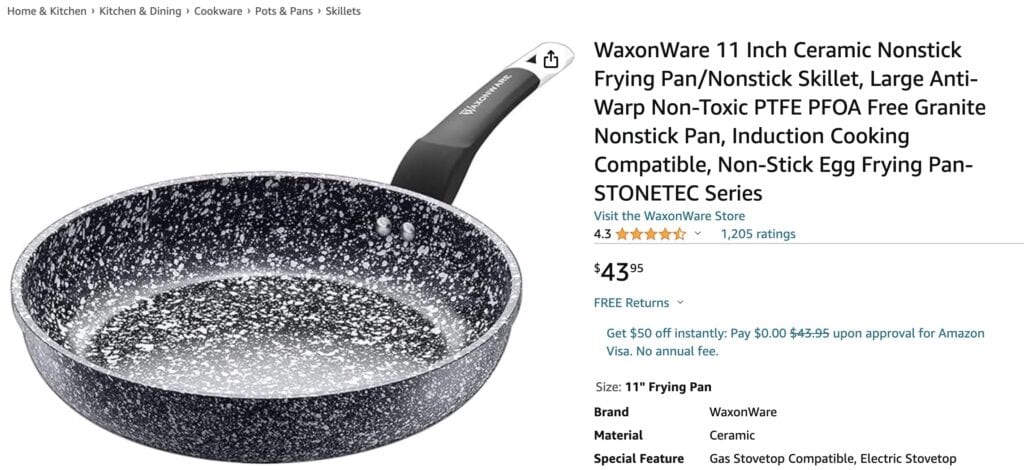
This is the type of pan you would want to look for. The keywords to look for are “ceramic” and “PTFE, PFOA free”.
If they don’t have these words in there, they likely use PTFE/Teflon.
Here is an example of cookware you should avoid that most likely has PTFE/Teflon in it:
Unsafe Granite Cookware
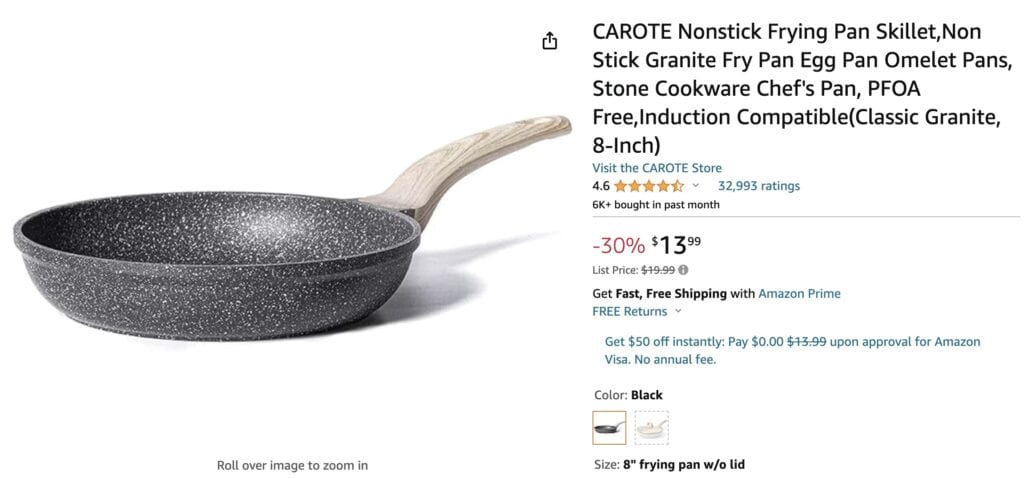
See how they try to look safe by just saying they are “PFOA-free”?
While PTFE pans have been PFOA-free since their nasty health effects came to light, a new toxic replacement called “GenX” has taken its place in the production of PTFE.
Steer clear of pans like this.
So if you decide granite cookware or non stick coated cookware isn’t your thing, you’ve got some other options.
Alternatives To Granite Cookware
These cookware materials are naturally non stick, and while the non-stick isn’t as great the non stick coatings, they still work well.
- Pros: Durable, non-reactive, and resistant to rust and staining.
- Cons: non-stick does not work as well as coatings, may require more oil or butter.
- Pros: Extremely durable, naturally non-stick when seasoned properly, and can be used on both the stovetop and in the oven.
- Cons: Heavy, requires proper care to prevent rust, and retains heat for a long time.
- Pros: Lightweight compared to cast iron, heats quickly, suitable for high-heat cooking.
- Cons: Requires seasoning and can rust if not dried properly.
And when it comes to bakeware materials, glass is always a favorite. Just be sure the glass is oven safe!!
Until next time, happy cooking!

